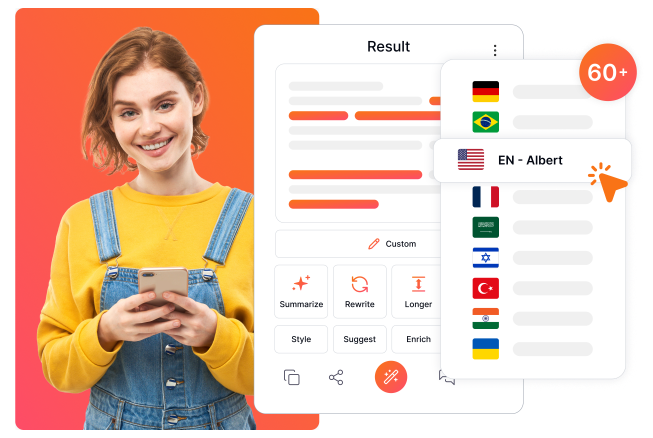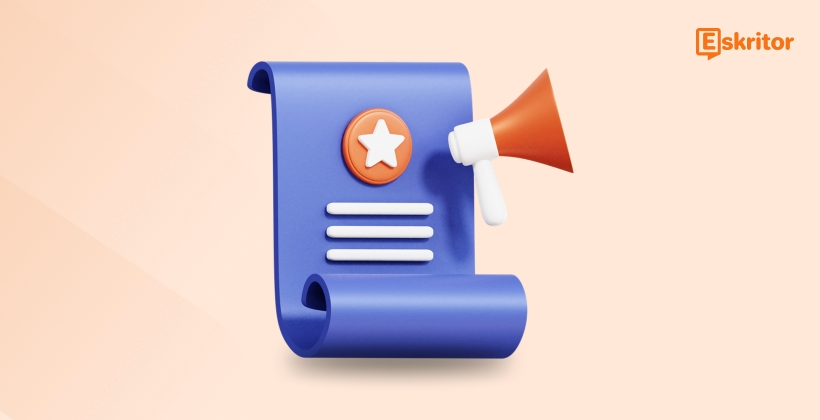Why AI Editing is Revolutionizing Proofreading
Why AI Editing is Revolutionizing Proofreading
Blog Article
Mastering Content with AI Editing Tools
Synthetic intelligence (AI) publishing technology has developed fast over the past decade, reshaping the way we create and communicate with written content. From syntax modification tools to AI-generated books, the possibilities appear limitless. But where just is that engineering heading? Let's explore the improvements, challenges, and potential potential of ai grammar checker.

How AI Publishing Technology Performs Today
At their key, AI writing engineering utilizes Natural Language Running (NLP) and equipment learning. These systems help designs to comprehend, make, and increase human language. Instruments accessible nowadays excel at jobs like:
1. Material Development
AI has reached a point wherever it may generate total website threads, social networking sayings, and even media articles. Some designs are designed for mimicking individual writing models so effectively that distinguishing between AI- and human-written content is now significantly difficult.
2. Grammar and Type Suggestion
AI-powered publishing personnel don't just always check for syntax and punctuation problems; additionally they give suggestions to boost tone, understanding, and sentence structure, creating complicated publishing accessible to an extensive audience.
3. Sentiment Examination
AI may examine the mental tone of a piece, permitting firms to evaluate how their communications can resonate with readers. This is particularly of good use in advertising and client interaction.
The Current Traits in AI Writing Engineering
A few styles are shaping the next stage of AI-powered writing tools:
• Personalization
AI writing technology is increasingly effective at tailoring material to specific preferences. Models may adjust to a user's publishing fashion, ensuring the output thinks authentic.
• Multilingual Functions
Many AI tools are growing their international achieve by giving increased translation characteristics and help for multiple languages.
• Improved Study Characteristics
AI instruments today possess the capacity to analyze large amounts of data and offer fact-checked, well-researched publishing in moments, simplifying the process for experts in industries like legislation, financing, and journalism.
What the Potential Keeps for AI Writing Technology
1. Increased Creativity
While recent AI is good at generating content, its imagination is still limited by habits within its teaching data. Potential AI isn't just expected to help but to produce unique, topical works that problem human imagination.
2. Easy Venture
Imagine an AI that performs along side you in real-time, doing your phrases, conducting live edits, and also brainstorming ideas. AI publishing methods may possibly shortly become co-authors, allowing creativity to movement uninterrupted.
3. Moral and Available Style
With rising concern about plagiarism, misinformation, and opinion, designers are working toward more clear AI training procedures and moral implementation. Future tools will probably provide more detailed citations and procedures to make certain accountability.
Difficulties and Factors
The development of AI writing engineering is not without hurdles, including:
• Honest Issues

Who possesses content developed by AI? How can we assure AI-generated material is not spreading misinformation? These debates stay unresolved.
• Human-AI Balance
Will AI complement individual creativity or totally change particular jobs? Many authors and artists worry about their relevance within an AI-driven world.
• Accessibility Divide
Not totally all organizations or regions have similar usage of cutting-edge AI instruments, increasing questions about the impact of the engineering on global inequality.
Changing the Way We Write
AI publishing engineering continues to be in their infancy compared to their potential. Whether you are a student designing essays, a material marketer targeting specific audiences, or perhaps a novelist seeking inspiration, AI methods will continue to revolutionize the publishing process. The following decade claims breakthroughs that mixture individual ingenuity with equipment intelligence, making a potential where writing is more efficient, available, and impactful than ever before.
Report this page